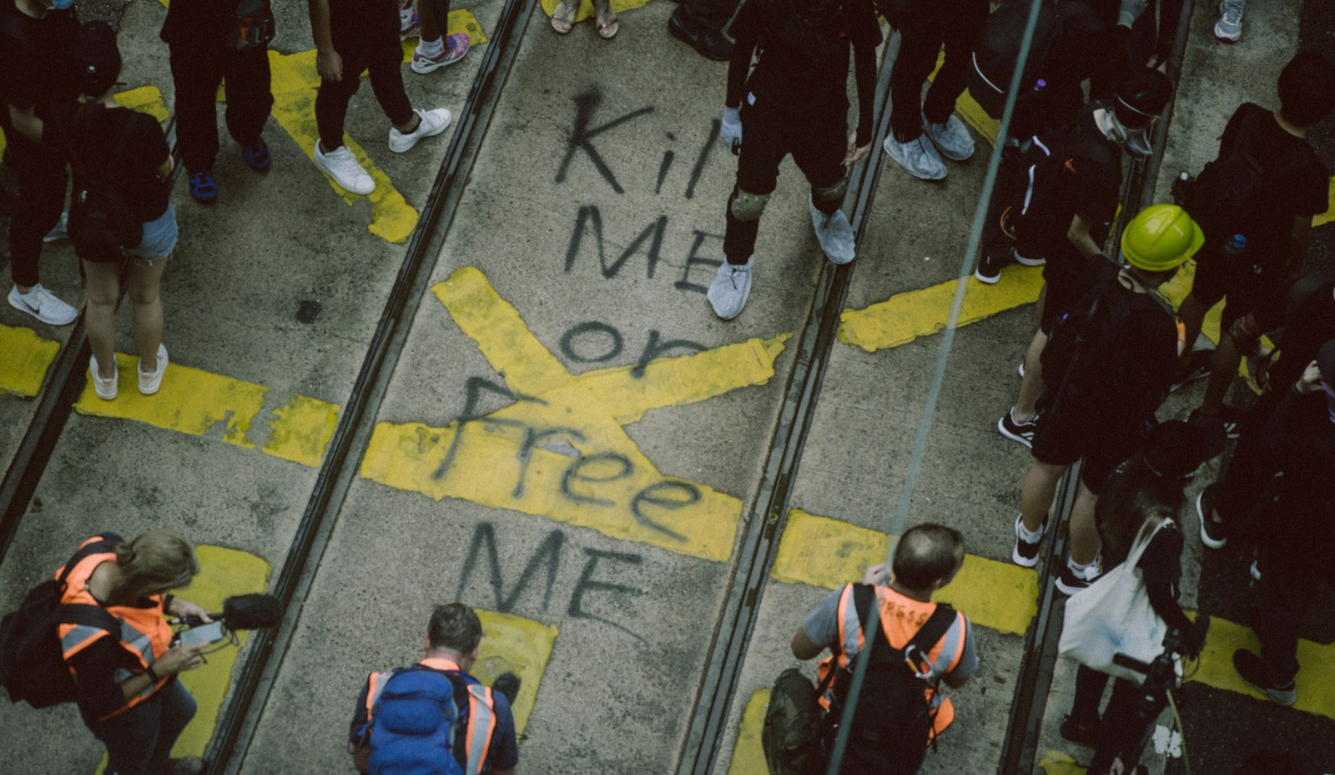
The Hong Kong anti-extradition movement is experiencing dark times. Exiles endure public beatings in Western countries; would-be exiles endure torture in Chinese jail cells. Million-dollar bounties are pronounced, public confessions are extorted, and lifelong manhunts are threatened. Three years after the final erasure of Hong Kong’s freedoms, citizens are still fleeing the territory for safer shores. We have come a long way from the glorious peak of 2019, when a single march would attract two million participants—the strongest possible demonstration of the will of the people to a watching world.
I recall an old friend’s social-media post that year: a grainy video clip taken from the top deck of a bus as it crawled through downtown Hong Kong one summer night. Crowds lined the sidewalk, waving up at the occupants of the bus with smartphones that flashed in the dark like torches. Passengers shouted references to the protest movement, pedestrians roared back in accord, and the city’s winding urban canyons echoed with a rhythmic Cantonese call-and-response, punctuated now and again by the melodic acknowledgement of taxi horns. On and on it went: a rippling, chanting line of protesters that stretched from district to district like the makings of a vast army; numbers now past the point of absurdity, a line that seemed to stretch into infinity. Watching the scene, I felt the stirring of some primitive instinct that had to do with tribalism, solidarity, unity of purpose, terrific strength in numbers, and more than this: the certainty of a cause worth dying for.
Where are they all now? COVID-19 crippled the protests, and the National Security Law (NSL) applied the decisive bullet. With this legislation, Beijing actually broke the terms of the Sino-British Joint Declaration, overriding Hong Kong’s legal and political system. In response, Boris Johnson’s British National Overseas settlement scheme enabled 166,000 Hongkongers to flee to the United Kingdom. They settled in Ealing, Barnet, Salford, and Reading. Others made it to Singapore, Japan, Canada, and Australia. To date, a total of half a million have left the city. But when we recall those two-million-strong marches, we will realise that most of the dissenting voices are still in Hong Kong, lying low in what is effectively a colonised territory.





